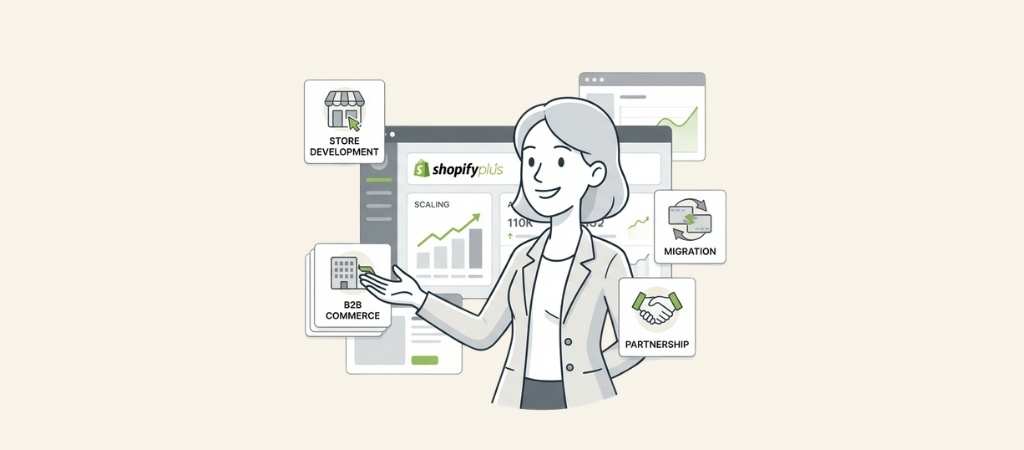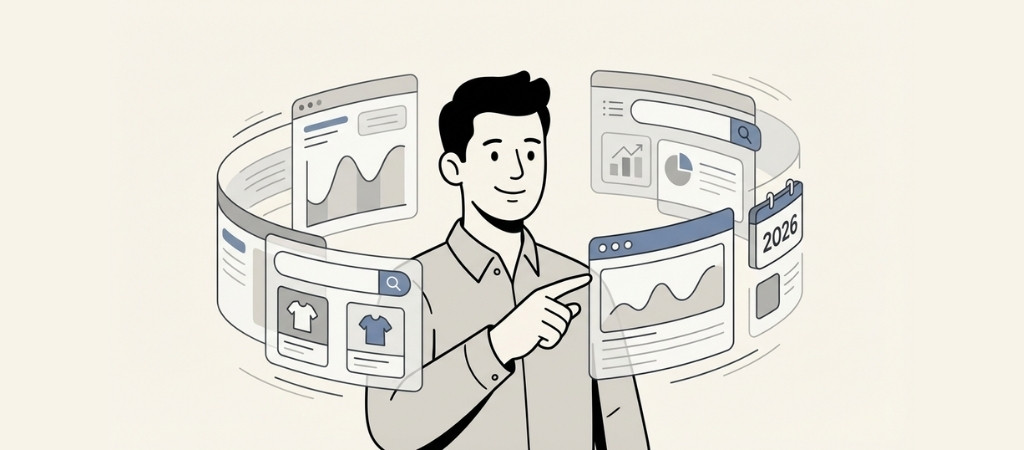Why AI is Essential for Ecommerce Success
AI is no longer a futuristic concept - it’s a practical tool that helps ecommerce businesses to stay ahead in a competitive landscape.
From understanding customer behavior to automating critical tasks, AI offers solutions that free up valuable time, reduce costs, and improve scalability.
For Shopify store owners, using AI effectively means delivering exceptional customer experiences while optimizing every aspect of operations.
This article dives into seven actionable AI strategies that can make a tangible difference for your business - whether you’re building customer personas or crafting high-conversion ad campaigns.
1. Customer Avatar Research: Understanding Your Audience on a Deeper Level
Knowing your customers is the cornerstone of any successful ecommerce strategy. AI tools like ChatGPT can analyze customer reviews, comments, and feedback to generate in-depth personas that go beyond basic demographics.
How It Works:
- Data Collection: Start by scraping customer reviews from platforms like Amazon, Reddit, or your own store.
- AI-Powered Insights: Feed this data into AI models to uncover key customer pain points, emotional triggers, purchasing motivations, and even how customers describe their needs in their own words.
Benefits:
- Craft hyper-targeted ad copy and website messaging.
- Gain insights into what drives purchasing behaviors, such as peer pressure or seasonal events (e.g., fireworks affecting pets).
- Develop a multi-page customer persona filled with actionable details for marketing campaigns.
Example:
For a pet supplement brand, AI revealed that customers’ biggest concerns included their dogs’ anxiety during loud events and the ineffectiveness of other calming products. This insight allowed the business to position their product as a natural, non-medication alternative.
2. Competitor and Market Research: Staying Ahead of the Game
AI can streamline competitor analysis, giving you a detailed overview of your market landscape. By analyzing data from sources like Google Trends, social media comments, and competitor ads, you can gain a competitive edge.
Key Steps:
- Data Aggregation: Combine information from public online reviews, meta ad libraries, and even competitor pricing.
- AI-Driven Analysis: Use AI to generate SWOT (Strengths, Weaknesses, Opportunities, Threats) analyses for competitors.
Practical Outcomes:
- Uncover gaps in your competitors' offerings that you can capitalize on.
- Identify pricing strategies, unique selling propositions (USPs), and customer sentiments across the industry.
3. Website Conversion Rate Optimization (CRO)
While human expertise still leads the way in CRO, AI can provide complementary insights to improve user experience and boost sales.
Use AI for:
- Feedback on Site Layout: AI tools can analyze screenshots of your product pages and suggest UX improvements, such as sticky "Buy Now" bars or comparison tables.
- Data-Driven Prioritization: AI highlights which aspects of your site need immediate optimization, like positioning testimonials for maximum impact or emphasizing value propositions (e.g., free shipping, guarantees).
Example:
A pet supplement store used AI to recommend moving key testimonials above the fold and introducing visual comparison tables. These changes contributed to a more engaging product page experience.
4. Custom Calculators for Business Metrics
AI excels at calculations, enabling ecommerce businesses to create custom tools for forecasting, budgeting, and goal-setting.
Applications:
- Predict monthly website traffic based on conversion rates and average order value (AOV).
- Model the cost of scaling campaigns, factoring in cost-per-click and customer acquisition costs.
- Simulate subscription churn rates and calculate the revenue impact of reducing churn by specific percentages.
Why It Matters:
These AI-powered calculators help store owners make data-driven decisions without wasting time on manual calculations.
5. Email Copywriting: Personalization at Scale
Writing high-converting emails is now faster and easier with AI tools. By providing AI with a clear prompt - including your brand details, target audience, and campaign objectives - you can generate copy that resonates with your customers.
Use Cases:
- Develop email templates for promotions, holiday campaigns, and product launches.
- Test different tones, CTAs (calls-to-action), and subject line variations to find what works best.
Example:
For a Black Friday campaign, AI generated subject lines like "More Better Joints, Limited Time" and email copy highlighting the emotional benefits of the product for pet owners. While the copy wasn’t perfect, it provided a strong foundation that could be refined further.
6. Image Generation: Enhancing Visual Content
AI isn’t just for text - it can also generate compelling visuals for your ecommerce store. From lifestyle images to product photos, AI tools can create high-quality graphics quickly.
How It Works:
- Upload existing product images as reference material.
- Use AI to generate lifestyle photos, before-and-after comparisons, or creative backdrops.
Example:
An AI model generated realistic images of a Labrador holding a pet supplement product. While minor tweaks were needed for fonts and details, the results were nearly professional-grade, significantly reducing design costs and time.
7. Ad Creation and Video Scriptwriting
AI tools can analyze competitor ads and use that data to create high-impact ad copy and video scripts tailored to your brand.
Step-by-Step:
- Analyze competitor ads using AI to identify hooks, angles, and persuasion techniques.
- Use these insights to craft ad campaigns, complete with headlines, product benefits, and emotional appeals.
- Generate video scripts (e.g., for explainer videos or ads) by combining customer pain points and USPs into a compelling narrative.
Example:
AI crafted a direct-response video ad script for a pet product with the opening hook: "If your dog is slowing down, it’s not just age - it could be joint pain." This emotionally resonant approach draws in viewers and frames the product as a solution.
Key Takeaways
- Understand Your Audience: Use AI to build detailed customer personas based on reviews and feedback.
- Stay Competitive: Conduct in-depth competitor analyses to identify opportunities and differentiate your brand.
- Optimize Your Website: AI tools can suggest practical UX and CRO improvements for your product pages.
- Make Data-Driven Decisions: Leverage AI for custom calculators that predict traffic, forecast revenue, and optimize ad spend.
- Streamline Content Creation: Use AI to write compelling emails, ads, and video scripts tailored to your audience.
- Enhance Visual Content: Generate high-quality product photos and lifestyle images with AI.
- Scale Your Ads: Analyze competitor ad strategies and craft tailored campaigns for maximum impact.
Conclusion: Transform Your Ecommerce Business with AI
The integration of AI into your ecommerce business has the potential to revolutionize how you operate. From customer research to ad creation, AI tools are versatile, efficient, and scalable, helping store owners save time, reduce costs, and provide a better customer experience. While AI may not replace human creativity entirely, it acts as a powerful partner in driving productivity and profitability. By adopting these seven strategies, you’ll be equipped to elevate your ecommerce operations to the next level.
Source: "7 Easy Ways To Use AI In Your Ecommerce Store" - Daniel Budai • Ecommerce Growth Marketing, YouTube, Aug 14, 2025/
Use: Embedded for reference. Brief quotes used for commentary/review.
Recommended reading: How to Make Your Shopify Store Show Up in ChatGPT (Step-by-Step)
Also read: Best eCommerce Call Center






